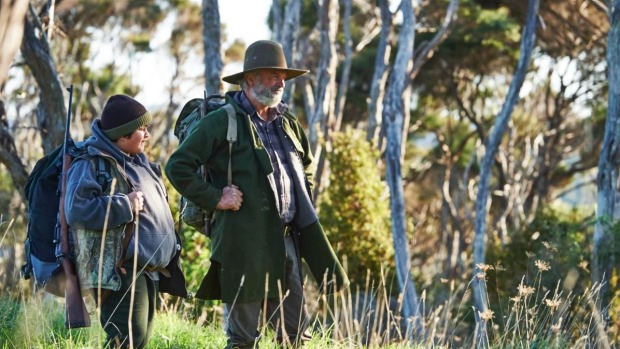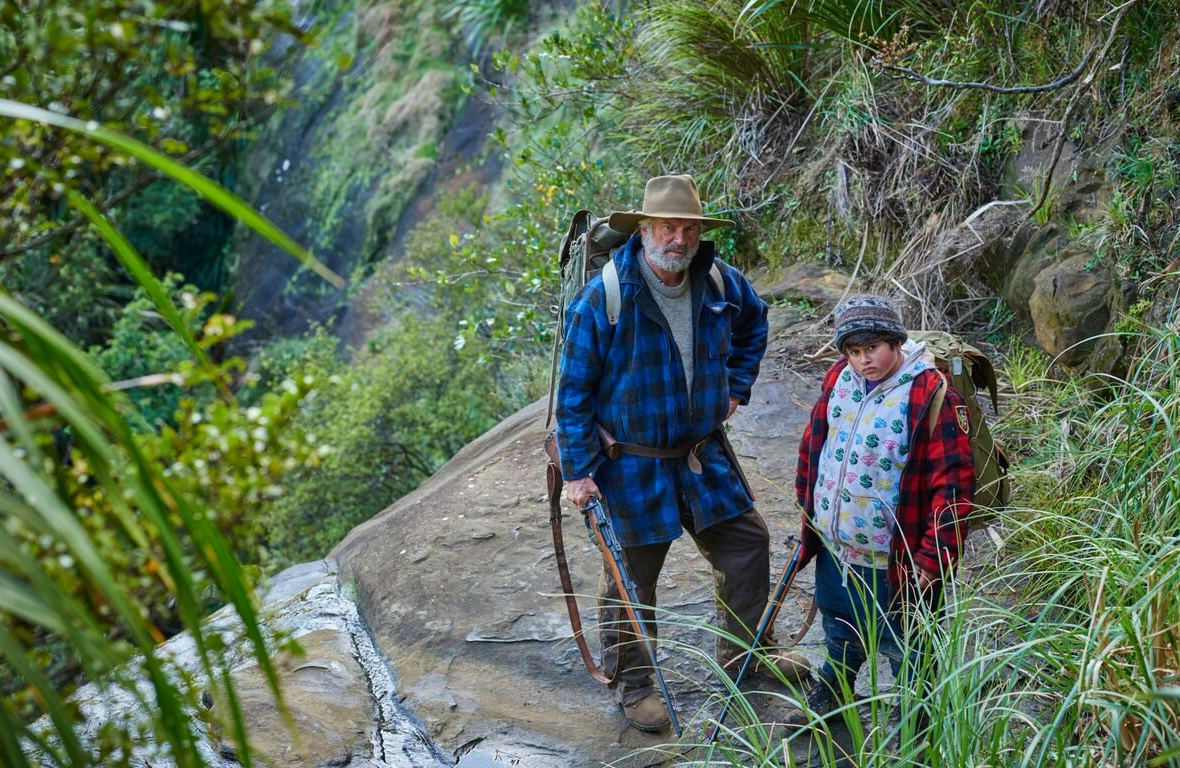The Huntsmen.
‘I felt my lungs inflate with the onrush of scenery—air, mountains, trees, people. I thought, “This is what it is to be happy.”’ – Sylvia Plath, The Bell Jar
About three quarters of the way through Taika Waititi‘s Hunt For The Wilderpeople, the two protagonists, Ricky and Hec, arrive at a snowy section of the New Zealand wilderness. They’ve been trekking for months. They’re up high enough and the atmosphere is cold enough for their surroundings to be masked by snow. Ricky and Hec are worn out, dirty and living on the edge of the law. But there’s a something serene about their environment.
Then a song begins to play. It’s Leonard Cohen’s ‘The Stranger Song’. Any Robert Altman fan will remember it wafting over the opening credits of Altman’s 1971 master work, McCabe And Mrs Miller. That film played out in the wild, and in the snow. It followed dirty, worn out characters, living on the edge. And there was a sereneness to it. The sense of cinema in Hunt For The Wilderpeople is palpable. There may be all kinds of references to all number of films within Waititi’s narrative. A lot of it is derivative because of it, but then that’s sort of the point.
Taika Waititi’s films can be quirky, and sentimental, and funny. They can also err towards ludicrous, which is alternately grating and charming in Hunt For The Wilderpeople. It’s a spirited film in terms of narrative but a gentle one in terms of tone. Waititi is interested in emotional human connection and the connection between humans and nature – not in a way that we haven’t seen before, but it’s appealing enough to not matter. The concerns of Hunt For The Wilderpeople have been engaged with plenty of times over the years by all variety of filmmakers, but there’s a reason for it. Human connection and nature connection are appealing themes in film because they’re appealing in life.
Ricky Baker (Julian Dennison) is a troubled young boy, tossed around by foster families for most of his life. His last stop is with Aunt Bella (Rima Te Wiata) and Uncle Hec (Sam Neill), a couple living in a remote abode in the middle of the New Zealand wilderness. It’s the last stop because if they can’t make it work, Ricky will be sent by Child Protective Services to a juvenile detention centre. Hec is gruff and unfriendly but Bella is caring and warm, and Ricky immediately warms to her. Then she dies, leaving the two males alone and at odds with one another. From the outset, the intentions of Waititi are clear. Film institution dictates that Ricky and Hec will warm to one another. But Hunt For The Wilderpeople is such an affable film that anything else would have cheated our expectations. Truth be told, most of us want a film like the one Waititi has created to be calculable, at least to a degree.
Much of that predictability occurs as a result of Waititi’s engagement with other films. On top of McCabe And Mrs Miller, there are references to The Lord of the Rings, The Goonies, Terminator, Rambo, Scarface, Smash Palace, Mad Max, Thelma And Louise and undoubtedly dozens more. They seem like films that Ricky might have seen. Waititi weaves them naturally into his film but there’s a sense that Ricky and Hec’s story is a reality distorted by imagination.
Waititi directed Boy, which also examined the relationship between a young, imaginative boy and a father figure (in that case, his actual father). Waititi handles both films with a certain untidiness, and both films toe a line between charming and touching. Some elements of the film are grating, but that’s the nature of quirky realism, which has seen a rise in popularity over the past decade or so. But it’s that quirky realism that elevates Hunt For The Wilderpeople, even though it’s also what sometimes cripples it and there’s such an effortlessly conveyed charm that it’s difficult to begrudge the occasion misstep.
7/10
For more Reviews, click here. If you’re digging ReelGood, sign up to our mailing list for exclusive content, early reviews and chances to win big!

